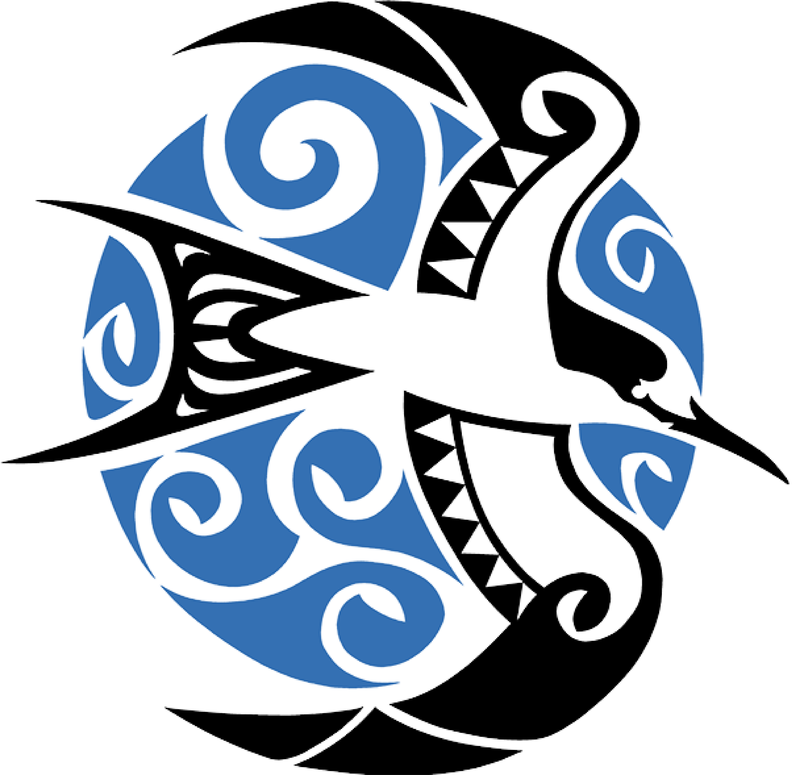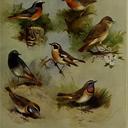Ethno-ornithology World Atlas (EWA)
EWA is a collaboration between Oxford University’s Department of Biology, the School of Anthropology and Museum Ethnography, and BirdLife International. EWA is guided by a Secretariat. EWA incorporates both the Ethno-ornithology World Atlas project, mapping both the rich global lexicon of bird names and human cultural connections with birds, and the Ethno-ornithology World Alliance - a newly formed group promoting the aims of ethno-ornithology and conservation.
EWA promotes the engagement of all people in bird conservation by opening a space where they can share their knowledge, language traditions, and understandings of birds. Founded on the recognition that humans everywhere are inspired culturally, practically and spiritually by birds, EWA is about building relationships between Indigenous and local communities, conservationists, academics, and their institutions, to promote bird conservation through the engagement with, respect for and celebration of diverse cultural traditions of knowledge.
EWA uses a Mukurtu platform. Mukurtu (MOOK-oo-too) is a grassroots project aiming to empower communities to manage, share and exchange their digital heritage in culturally relevant and ethically-minded ways. We are committed to maintaining an open, community-driven approach and to help build a platform that fosters relationships of respect and trust. Learn More >>
EWA supports best practices and ethics in ethnobiology:
Following the International Society of Ethnobiology‘s Code of Ethics, EWA acknowledges that “biological and cultural harms have resulted from research undertaken without the consent of [local and] Indigenous peoples” (ISE 2006). EWA encourages work that is collaborative “in ways that support community-driven development of [local and] Indigenous peoples‘ cultures and languages, acknowledge [local and] Indigenous cultural and intellectual property rights, [and] protect the inextricable linkages between cultural, linguistic and biological diversity” (ISE 2006) and asks its users to become familiar with the ISE Code of Ethics (http://www.ethnobiology.net/) as well as other Ethics Codes for their particular discipline or region before contributing material to EWA.
EWA is designed to help support a transformation in how research with and by communities is done. For example, contributors to the atlas are able to control access to, and sharing of, their contributions using Cultural Protocol settings, i.e. by making them private, by sharing them with trusted community members, or by allowing open access (following the example set by the Endangered Languages Archive; also see Nathan 2010).
Drawing on the work of those developing the Creative Commons framework and the innovative Traditional Knowledge (TK) Licenses and Labels, EWA also prioritizes the licensing of cultural materials so that knowledge owners can indicate whether and how material may be used or adapted elsewhere. Contributors of material which they do not actually own may add a formulated label to help non–community users of traditional knowledge understand the importance and significance of this material, even when it is in the public domain and appears as though it can be shared and used by everyone. This is often not the case for traditional knowledge, and the Labels are designed to identify and clarify which material has community–specific, gendered and high–level restrictions. This is especially with respect to important sacred and/or ceremonial material. […The Labels] can be used to include information that might be considered missing‘, for instance the name of community from where it derives, what conditions of use are deemed appropriate, how to contact the relevant family, clan or community to arrange appropriate permissions. (http://www.localcontexts.org/#labels, accessed 25 February 2015) In this way EWA facilitates the curation and control of ethno–ornithological materials by members of the community of origin.
EWA is a work in progress, supported from time to time by small and large grants and a network of interested parties. There may be times when support from administrators is less available. It is an imperfect website that we hope will be continually evolving, improving and contributing to the vitality of the larger Mukurtu community. Using EWA requires some commitment and time on the part of the user, both to learn the platform and to contribute material that is of high quality. For use in dedicated projects we recommend designating one or several (paid) assistants who will take responsibility for organizing, checking, and uploading material. Material hosted on EWA is not all peer-reviewed, though some may be. Materials hosted here are intended as contributions to ongoing conversations; dialogue may occur through comments and multiple views/ knowledges are expected.
If you are interested in joining our research group, please take a look at our currently available positions below.
Fellowships
Please get in touch with Prof Andrew Gosler (andrew.gosler@biology.ox.ac.uk) if you are considering applying for a fellowship to join the group.
DPhil studentships
Available funded positions will be advertised below, but we are always happy to hear from prospective students.
Academics in the group who can supervise:
Prof Andrew Gosler (andrew.gosler@biology.ox.ac.uk)
Currently available opportunities
About Ethno-Ornithology
https://www.youtube.com/embed/nQzdXdBqVO4?si=aTi_2fBsPPEaRZQQ
What is Ethno-Ornithology?
The roots of Ethno-Ornithology
Introduction to the Ethno-ornithology World Atlas
Articles
About birds
https://www.youtube.com/embed/TEPiEYtYT7o?si=AkA-l-mpEt641T7R
How to identify birds from their song - 31 species around Oxfordshire
The lost voices of Oxfordshire - birds that have become rare or extinct
Common swifts in the tower of Oxford's Museum of Natural History
Mute swan round-up at Abbotsbury Swannery, Dorset

PI
Group members
Wingspan graphic by F. Wyndham (2015) CC BY-NC-SA 4.0.



